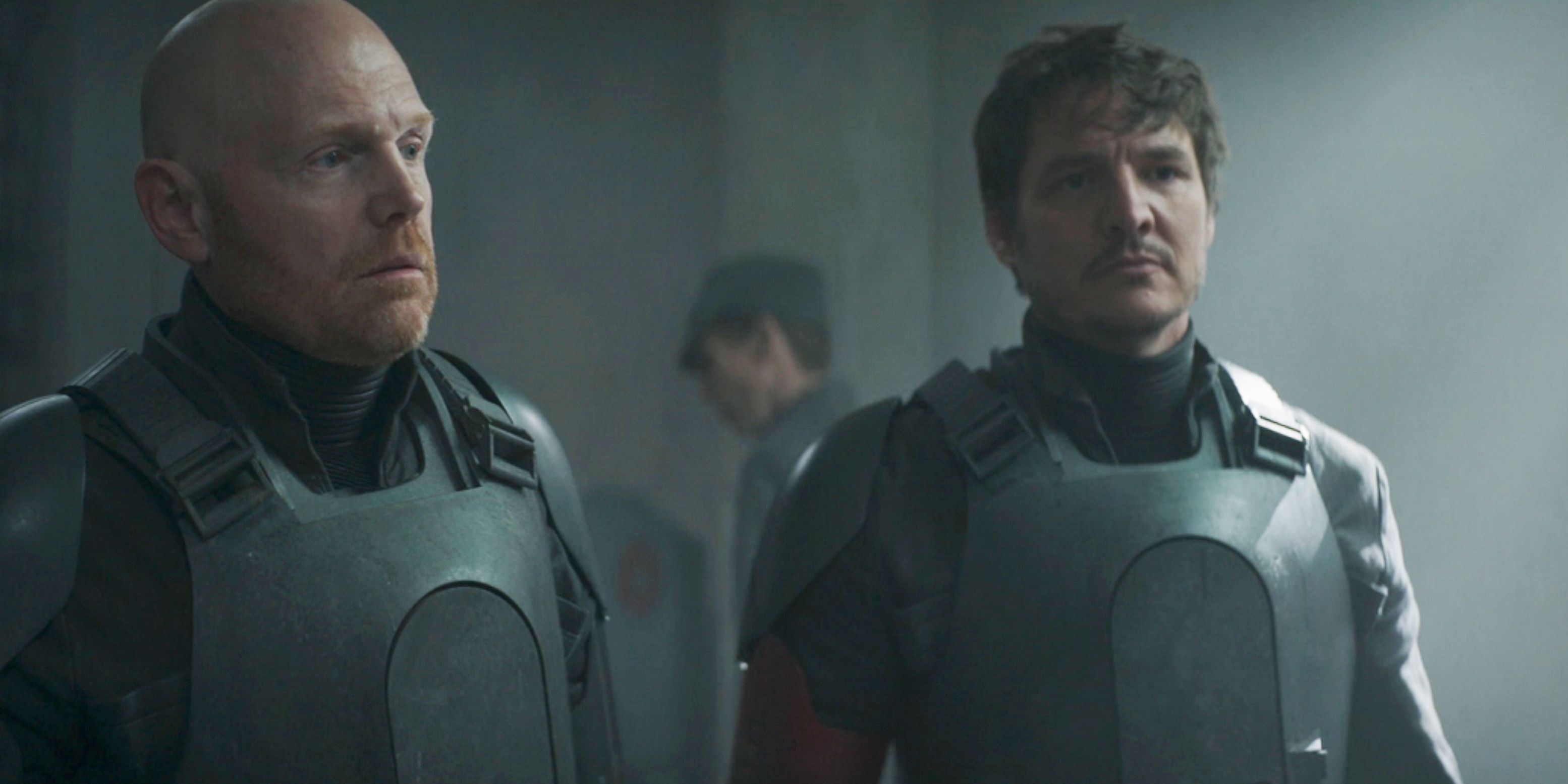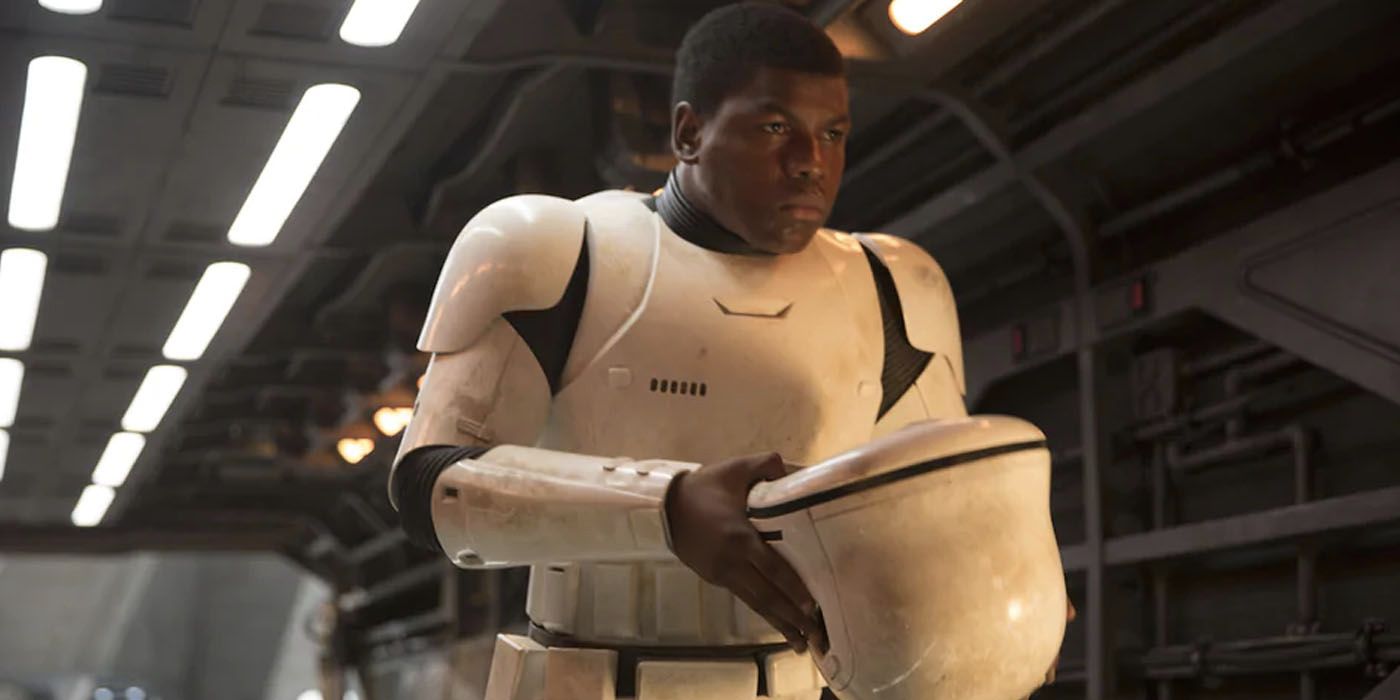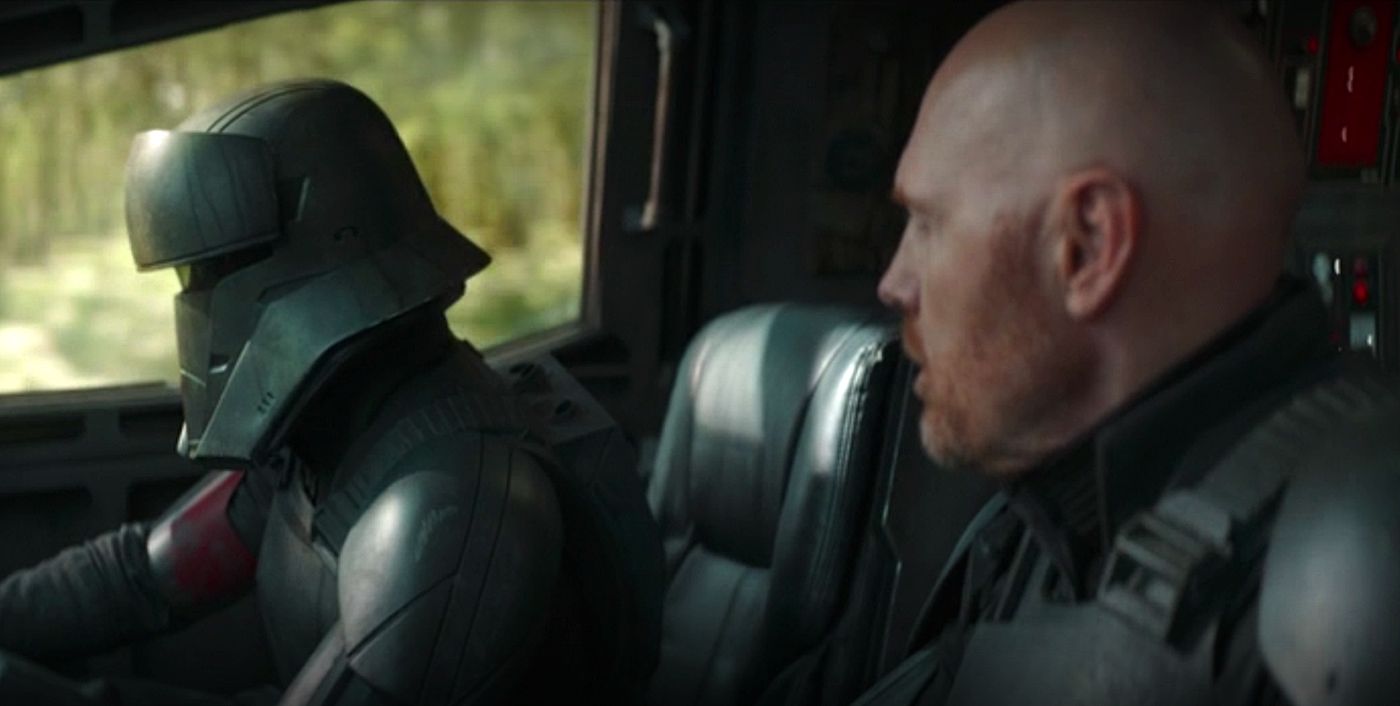WARNING: The following contains spoilers for The Mandalorian, "Chapter 15: The Believer," streaming now on Disney+.
Like the epic fantasies, spaghetti westerns and samurai movies that inspired it, Star Wars started out as an unambiguous tale of good versus evil. Heroes dressed in white face off against villains cloaked in black. The Empire is oppressive, the Rebels are noble, their victory is cause for celebration. More than four decades later, Disney+'s The Mandalorian is winning praise for recapturing what made the Original Trilogy so great, but it's also pushing the franchise's boundaries more than ever before, especially thematically. The penultimate episode of the second season, "Chapter 15: The Believer," takes the very question of what constitutes morality from subtext to text, with a storyline that challenges its protagonist's entire belief system.
This seemingly new perspective hasn't come out of nowhere. Star Wars has been steadily trending toward introspection and nuance. There are isolated examples in The Empire Strikes Back and Return of the Jedi, such as Lando's deal with Vader and Luke's decision to abandon his training. The Prequel Trilogy is more explicit, given its fascination with hubris on both a personal and societal level and its focus on Anakin as an anti-hero. Star Wars became significantly more socio-politically complicated with The Last Jedi, in which it's established that Stormtroopers are essentially kidnapped children and that both the First Order and the Resistance do business with wealthy weapons dealers who use slave labor and pillage planets for their natural resources. Leia also criticizes Poe's cost/benefit analysis after he sacrifices almost an entire fleet and many lives to take down one dreadnought.
But none of the Star Wars films comes close to the kind of internal ethical debate The Mandalorian has with itself in almost every episode. In part, that's because the audience is following the exploits of a bounty hunter so the show is starting from a point of professional neutrality. That Din Djarin isn't too entwined with existing Star Wars narratives and allegiances has lots of benefits, one of which is that, through this Mandalorian, viewers are able to revisit familiar peoples, places and events from the lure, and see and consider them from fresh points of view.
Ever since R2-D2 and C-3PO were denied entry into the cantina, jokes have been made about droids being othered in the franchise. Solo: A Star Wars Story included an interesting, if half-baked, subplot about the issue with L3-37's short-lived droid uprising. Meanwhile, in The Mandalorian's Season 1 flashbacks it's established that a young Din's parents were killed by a droid, which instills a deep distrust of their kind in him. That's explored, to emotionally compelling effect, with the relationship between Din and IG-11. The Mandalorian has also completely flipped the script on Tusken Raiders, who it's now impossible to see as anything else but stand-ins for indigenous people trying their best to co-exist with colonizers they simply can't get off their land. Similarly, how local governments interact with both the remnants of the Empire and the New Republic is treated with depth and pragmatism.
However, it's the Mandalorians themselves that are most under the show's microscope. What started as cool concept art has evolved into a creed with its own code, and as Season 2 has illustrated, schisms within. The series' inciting incident is Din's decision to break that code when his moral compass guides him to protect The Child rather than complete his contract with the Client. Though he and Grogu are in a survival situation, Din tries to adhere to as much of that code as possible.
Until recently, that meant finishing quests and keeping his helmet on. Everything else has been more or less negotiable. His dogma about the helmet wasn't exactly tested when Bo-Katan noted he must be a member of the overzealous Children of the Watch, but with the realization that not all Mandalorians abide by his version of the creed, a seed was planted. He bent but didn't break the rules as he helped Ahsoka Tano take out the Magistrate, who had offered him a beskar spear in exchange for the former Jedi's death. His concept of what it means to be a Mandalorian and a foundling was expanded even more when he encountered Boba Fett, simply looking to strike a fair deal to recover armor that's rightfully his.
Then, Moff Gideon's Dark Troopers snatched The Child from the seeing stone before Mando can get there, and his priorities suddenly changed. He has to rely on Migs Mayfeld -- an untrustworthy character from his own shady past who he put in a prison camp -- to get Grogu back. Mayfeld's old ties to the Empire enable Din's crew of misfits to infiltrate a secret base on Morak. While there, Din dons Empire armor as a disguise. This prompts Mayfeld to question his religiosity. Is he not allowed to remove the headgear or is he not supposed to show his face? Mayfeld's really questioning the point of dogma -- and of tribalism.
Twice more in this episode, Mando and the audience are put in compromising positions. First, we're made to feel a sense of relief, and to temporarily side with Stormtroopers, when Mayfeld and Mando survive an assault by native pirates who are trying to suicide bomb their cargo transports. It's clear the Empire's presence on Morak is indefensible, but when characters we care about are in peril, our allegiance to them overrides our knowledge that the pirates' action may be justified. Then, when Din has no choice but to fully expose his face to a scanner as well as other living beings, it feels like a symbolic point of no return. This exploration of moral relativism not only speaks to the complex political moment the real world finds itself in, it also makes for better Star Wars.
Created by Jon Favreau, The Mandalorian stars Pedro Pascal, Gina Carano, Carl Weathers and Giancarlo Esposito. Seasons 1 and 2 are streaming now on Disney+.




